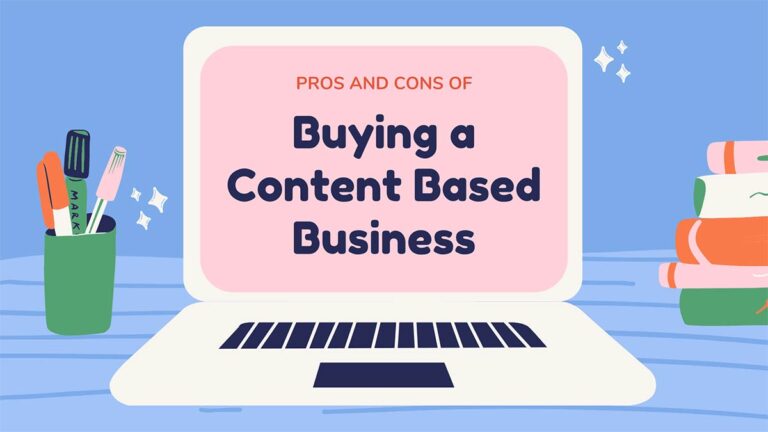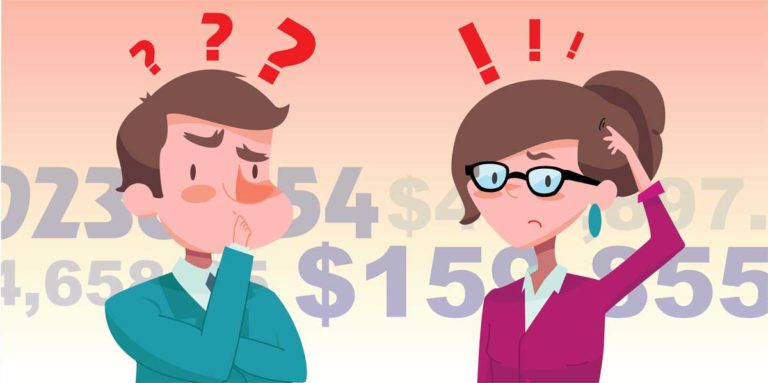Deciding to sell a website is often not an easy one to make. The average webmaster who has created a site that is worthy of a sale has often poured a lot of money, not to mention blood, sweat, and tears, into it so parting with it is often far from easy.
There may, however, come a time when selling makes sense. Maybe you no longer have the time to maintain it. Perhaps you’ve lost interest in this venture and want to move onto another one, using the cash from this sale to fund the new project. Or maybe you have just concluded that the time to cash in is now.
With all of this in mind here’s a look at the top nine biggest mistakes website sellers make, and how you can avoid them.
#1. Selecting the Wrong Website Broker
Because a website is mostly a piece of real estate on the web, it makes sense that the best results can often be obtained when you work with a broker, just as you would when selling a home. And just as is the case when selling a home choosing the right broker to work with is crucial.
What should you be looking for in a good website sales broker? All of the following for sure:
- Honesty
- Experience
- A proven sales track record
- Reliability
Basically, all of the traits that you would look for in a real estate broker should be found in your website broker. Don’t be afraid to ask questions or for proof of claims made either, as any good broker will be happy to provide them.
#2. Waiting Too Long for the Right Time to Sell
If the market for the type of site you have to offer is hot, procrastinating for too long about whether or not to do so can mean the market cools and you miss out. Once you’ve decided to sell go for it, as waiting around for a better time to sell that may never come is rarely a good idea.
#3. Poor Record Keeping
Potential website buyers will want stats, facts, and figures. And the severe ones (the ones willing to part with decent amounts of cash for the right sites) will want lots of them. If you can’t provide them the chances are that any possible sale is dead in the water from the start. Gather all the records you can and be ready, willing and able to provide them quickly upon request. And don’t even think about trying to fake anything, as a savvy website buyer will see through such things very soon during due-diligence.
#4. Not Knowing What Your Site is Worth
Getting your website’s listing price right is one of the most important elements of any sale. But what’s the best way to figure out what it’s worth? Here’s a tip; it’s not by plugging its URL into one of those ‘get a website valuation in seconds’ sites, that’s for sure.
Such sites can give you a very rough, ballpark figure that can serve as a potentially reasonable starting point but as every website has its unique features (or it should), then an accurate valuation takes a lot more work. All of those plugins you invested in? The site design you paid a pretty penny for? That email list you’ve been lovingly cultivating for years now? These are all things that affect the value of your website, and those calculators know nothing about them.
A better course of action? Get a proper valuation from a human expert, just like you would if you were selling your home. It might take a little longer but trust us, the (short) wait will likely be very much worth it.
#5. Focusing on Multiples
Do you have several sites to sell? Avoid the temptation to offer them as a bundle to score a quicker sale. Unless they genuinely belong together give each of the sites, you are selling the ‘chance to shine’ individually, in their listings, and you are far more likely to get the high returns you are hoping for.
#6. Changing the Asking Price Based on Needs or Emotions
Once you have determined the right asking price, stick to your guns. Don’t let a desire for the whole process to be over with lead you to drop the price just to score a quicker sale. And on the other hand, don’t inflate the price over the advised figure just because you believe that your site ‘should’ be worth more just because you put a lot of effort into creating it. Buyers don’t care much about that, they are only interested in cold, hard tangible facts.
#7. Not Understanding Your Legal Rights and Responsibilities
There is a lot of ‘legal stuff’ that goes along with the ownership and the sale of a website and all too often a webmaster is not quite familiar enough with it all. This is just another reason why working with an experienced website broker can be so advantageous. You may not understand all of the legal ins and outs but they do, and their advice could make a huge difference to the value of the deal you can strike with buyers for your site.
#8. Listing Your Site All Over the Place
Getting your website sales listing right is crucial. It needs to stand out, grab attention and appeal to buyers quickly. Creating such a listing takes time and effort, so do it once, do it well but then don’t dilute its value by listing it all over the place. Choose a good, reputable website broker, list your site there and focus on promoting that single listing alone.
#9. No After Sales Support
When choosing a website broker, one of the questions you should ask them is what kind of after sale support they offer. Why? Because the actual transfer of a website from one party to another can often be a little more complicated than most people bargain for having the help of an expert on your side even after a sale has been made can be a substantial extra benefit that people realize..until they need it that is.
Over to You
Whatever your reasons for being interested in selling your website, like everything else there are right and wrong ways to go about it. And getting things wrong can be the difference between making a great sale and losing out. Please share your thoughts below if you think we have missed out any other important point above.






